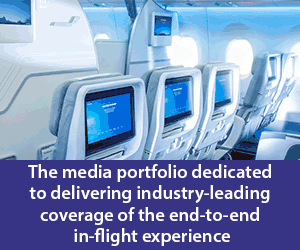
MIME Technologies, a med-tech spin-out from the University of Aberdeen, has unveiled a smart device to help manage in-flight medical events.
A multi-disciplinary team of physiologists, technologists and aviation medicine specialists have created a new wireless technology, named ‘Aiber’, that provides fast and accurate support to cabin crew, pilots and clinicians on the ground.
Allowing more informed decisions, it is applicable for a wide range of medical events, ranging from burns and allergic reactions to potential heart attacks in the skies.
Cabin crew are responsible for passenger care in-flight and receive detailed and specific first aid training, refreshed annually. While some airlines can call on clinical ‘on the ground’ support, this is not mandatory for all flights. Calling the ground can also be difficult, requiring the crew to leave the patient’s side to use the on-board phone or existing headphone technology, which is prone to serious challenges like noise interference.
Aiber is the first technology capable of ‘live’ streaming a wide range of passenger data to the ground, allowing real-time digital communication between the crew, the passenger and clinical support.
Anne Roberts, co-founder & chief executive officer of MIME Technologies, explains: “An in-flight medical event, even of a minor nature, can be hugely stressful for cabin crew. Our affordable technology guides them through their first aid training but, crucially, it live streams medical event updates to the ground.
“This is hugely significant as it allows a more informed decision about how stable a passenger is and whether the flight should divert or continue. It allows cabin crew to stay by the passenger’s side throughout and, using AI, it automatically stores and transmits essential information that can often be missed or only recorded after the event.
“For the first time, clinicians on the ground will be able to follow, in real-time, the deterioration or improvement of a passenger in the air using wireless technology and the tech provides a seamless handover to emergency services meeting the aircraft. We believe the technology will help avoid unnecessary diversions but, more significantly, it will help save lives by providing ‘eyes in the sky’ on flights globally.”
Dr Tim Stevenson, whose previous experience includes Head of Health Services at Virgin Atlantic Airways, and Company Medical Adviser at Easyjet, said: “Medical teams at all airlines are constantly trying to deliver best practice in- flight medical care to any sick passenger in the remote environment that is a plane in the air.
“This could be in the middle of an ocean or over a wide expanse of territory, with few diversion options. Simply flying over the middle of a continent thousands of feet above sea level brings its own medical issues when treating a sick passenger at altitude.
“Aiber helps the crew on board make appropriate, evidence-based decisions. The ability to communicate so efficiently with the ground-based medical support teams, who can advise on particular avenues of treatment or indeed appropriate diversion options for the best possible treatment, is priceless.
“Enabling crew members to communicate seamlessly with the airline operations centres, who can coordinate and facilitate the timely transfer of their sick passenger to advanced medical care, is another incredible benefit.”
Developed with input from two of the world’s leading airlines and suitable for use by commercial airlines and business jets, the technology can integrate wireless, clinical-grade, heart sensing equipment; specifically designed for non-medical professionals like cabin crew.
MIME recently completed field trials with a global aviation company, with multiple commercial and business jet customers in the pipeline.





